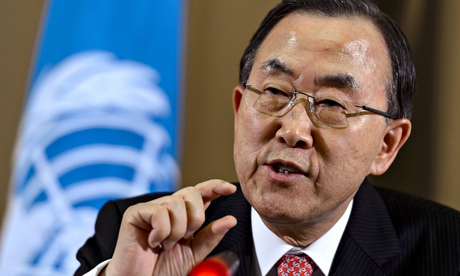
The World Health Organisation’s failure to respond appropriately to the Ebola crisis has shown the terrible consequences of poor, politically motivated appointments in key UN positions. However, there is no UN appointment process more in need of reform than that of the UN’s top job. The process for selecting the secretary general is so poor that the case for reform speaks for itself: there is no job description, no timetable for the appointment and no formal scrutiny of candidates; the security council decides on the candidate in secret; backroom deals are common; and to date no woman has been seriously considered for the post.
In response, the United Nations Association – UK and others have launched the 1 for 7 Billion campaign which is demanding a process that is not geared to produce the lowest common denominator candidate, and that complies with basic human resources standards. Last time round, calls for change came far too late for the creaking UN reform machine to respond. We need to be vocal about this now to make a difference in time for the selection of the next UN secretary general.
Ben Donaldson
United Nations Association – UK
• The very latest statistics from the government of Sierra Leone show that Ebola continues to spread and threaten the lives of thousands of people. The African Governance Initiative (AGI) rightly affirmed this weekend that the international community badly failed the worst affected communities and misjudged the impact of this epidemic in its first few months. But now it is misinformation that poses one of the biggest threats to the people of west Africa.
VSO has seen first-hand how misinformation around Ebola symptoms, prevention and care has placed a straitjacket on the response and is affecting the treatment of preventable conditions. Pregnant women and people with malaria are too scared to visit clinics, which is putting their lives and the lives of newborns at severe risk. We believe that new efforts to address misinformation through community awareness-raising meetings, radio discussions and trained local healthworkers will start to bring sick people back to the places where they can receive the best care.
Donne Cameron
Africa director, VSO International
